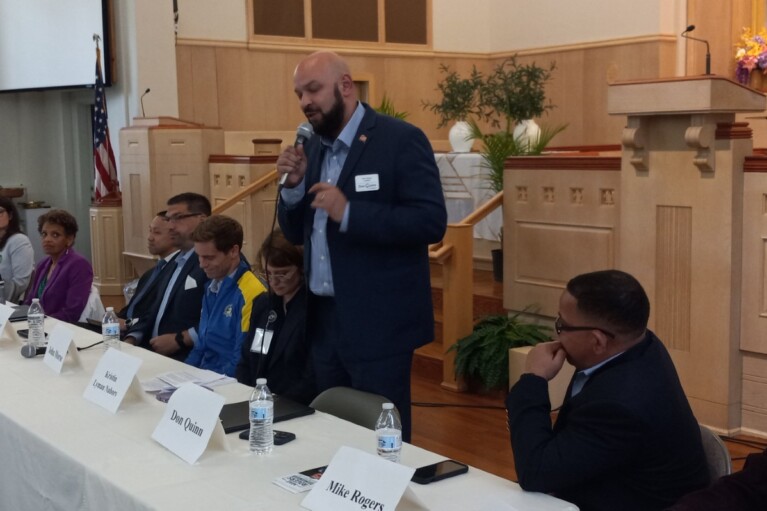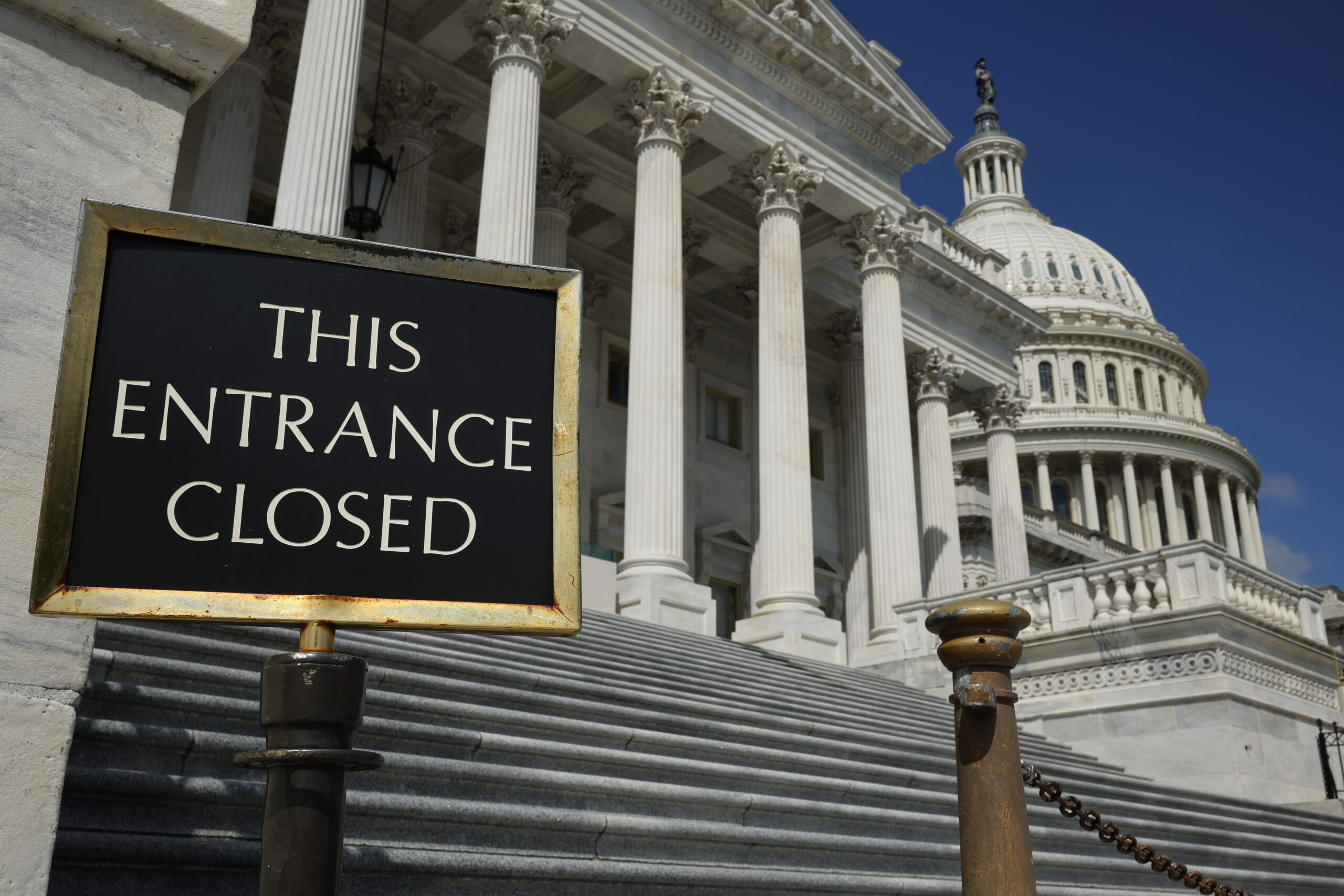How might U.S. Supreme Court cases on emergency abortion care impact Maryland?

Two U.S. Supreme Court cases involving states with near total abortion bans could allow emergency rooms to refuse to provide emergency abortions even in the case of severe, life-threatening pregnancy complications.
While abortion-rights advocates have sounded the alarm on what the case could mean for patients and providers living in states with restrictive abortion laws, the Supreme Court decision on the matter could also create complications for Marylanders if they need emergency abortion care.
The court cases, one in Texas and one in Idaho, could decide whether federal protections to receive life-saving emergency care include emergency abortions when the pregnant patient’s life is in danger.
Passed in 1986, the federal Emergency Medical Treatment and Labor Act, shortened to EMTALA, ensures “public access to emergency services regardless of ability to pay,” according to the Centers for Medicare and Medicaid Services (CMS).
Now, the reach of that law is in doubt.
In July 2022, CMS sent a letter to hospitals across the United States outlining that doctors can conduct an emergency abortion if it is necessary to “stabilize” patient’s medical condition, as obligated under EMTALA.
“If qualified medical personnel determine that the patient’s condition, such as an ectopic pregnancy, requires stabilizing treatment to prevent serious jeopardy to the patient’s health (including a serious impairment or dysfunction of bodily functions or any bodily organ or a threat to life), the qualified medical personnel is required by EMTALA to provide the treatment,” the letter says.
State laws that ban or severely restrict abortion care are preempted by the EMTALA statute, according to the letter.
But since the Supreme Court overturned federal abortion protections in 2021, the abortion landscape has become a patchwork of policy variations, with some states working to ban abortions entirely while other states try to be “safe havens” for abortion services.
“Across the country, anti-abortion legislators and judges are attacking settled law with regards to reproductive health care,” according to Erin Bradley, executive director of Planned Parenthood Advocates for D.C., Maryland, and Northern Virginia.
“Maryland legislators and voters have worked hard to make our state a place where pregnant people can access abortion care and providers can offer it, including in emergency circumstances, without fear of being attacked by extremists,” she said in a written statement.
But the state of Texas has sued the Biden administration for guidance in an effort to “transform every emergency room in the country into a walk-in abortion clinic,” according to the Texas Tribune, a content partner of States Newsroom.
And a similar Supreme Court case is occurring over Idaho law. The Biden administration is suing the state for its current abortion laws being too narrow for doctors to perform an abortion to stabilize a patient if needed, as EMTALA requires, according to Idaho Capital Sun, a sister publication of Maryland Matters.
“The U.S. Supreme Court will consider a case in Idaho regarding protections for emergency room physicians who may have to perform an abortion as stabilizing care. And, in the process, the court lifted an injunction that protected those doctors from prosecution in the state, which has a near-total ban on abortions,” the Idaho Capital Sun reported.
What does it mean for Maryland?
In 2023, Gov. Wes Moore (D) declared that the state would be a “safe haven” for Marylanders and for those from other states to receive abortion services, and signed several bills expanding access to abortion in the state.
But if the U.S. Supreme Court carves out emergency abortion services from EMTALA requirements, then some emergency departments in the state might refuse to provide abortions.
Sen. Clarence K. Lam (D-Howard and Anne Arundel), a physician who serves on the Senate Finance Committee, sponsored a bill in the 2024 session that would have required hospitals to provide abortions if it is the necessary procedure to stabilize a patient, regardless of the outcome of the Supreme Court decisions. But the legislation was unsuccessful.
“I think that’s a real possibility, and that’s why we put the bill in. Right now the only thing requiring all hospitals in the nation to provide abortion care is EMTALA,” Lam said. “Once that’s gutted on the federal level, then there are no provisions left at the state level to require religiously-affiliated hospitals from having to provide abortion care.”
“Once the federal law is dismantled when it comes to this provision, there’s no requirement for these faith-based hospitals in the state of Maryland to provide that care if they choose not to,” he added. “Right now they have to.”
Lam said ambulances transporting a pregnant patient who is suffering from significant medical needs would be transported to the nearest hospital, which could be religiously-affiliated that won’t provide an emergency abortion if the Supreme Court removes abortion from EMTALA requirements.
“Women that may have some kind of emergency related to their pregnancy, that may need an abortion…if you’re transported by an ambulance, you obviously don’t have a say over what hospital you go to,” Lam said. “And then suddenly, you as the patient have no ability to get the emergency abortion care that you need.”
Lam has particular concerns over how Maryland’s religiously affiliated hospitals would respond if the Supreme Court ultimately decides to remove emergency abortion procedures from EMTALA protections.
Maryland Matters reached out to some of the state’s religious-affiliated hospitals that have emergency departments, including Mercy Medical Center in Baltimore, Ascension Saint Agnes Hospital in Baltimore and Holy Cross Hospital in Silver Spring. None provided a comment.
Erin Bradley with Planned Parenthood, said that any decision by the Supreme Court other than to reject state efforts to “prevent hospital providers from performing abortions in emergency circumstances will lead to suffering, and possibly death, for people who are having pregnancy complications.”
“The outcome of this case could also risk sowing confusion among local providers, who may be forced to balance the oath they took to care for patients against considerations about potential penalties,” she said.




 Creative Commons Attribution
Creative Commons Attribution